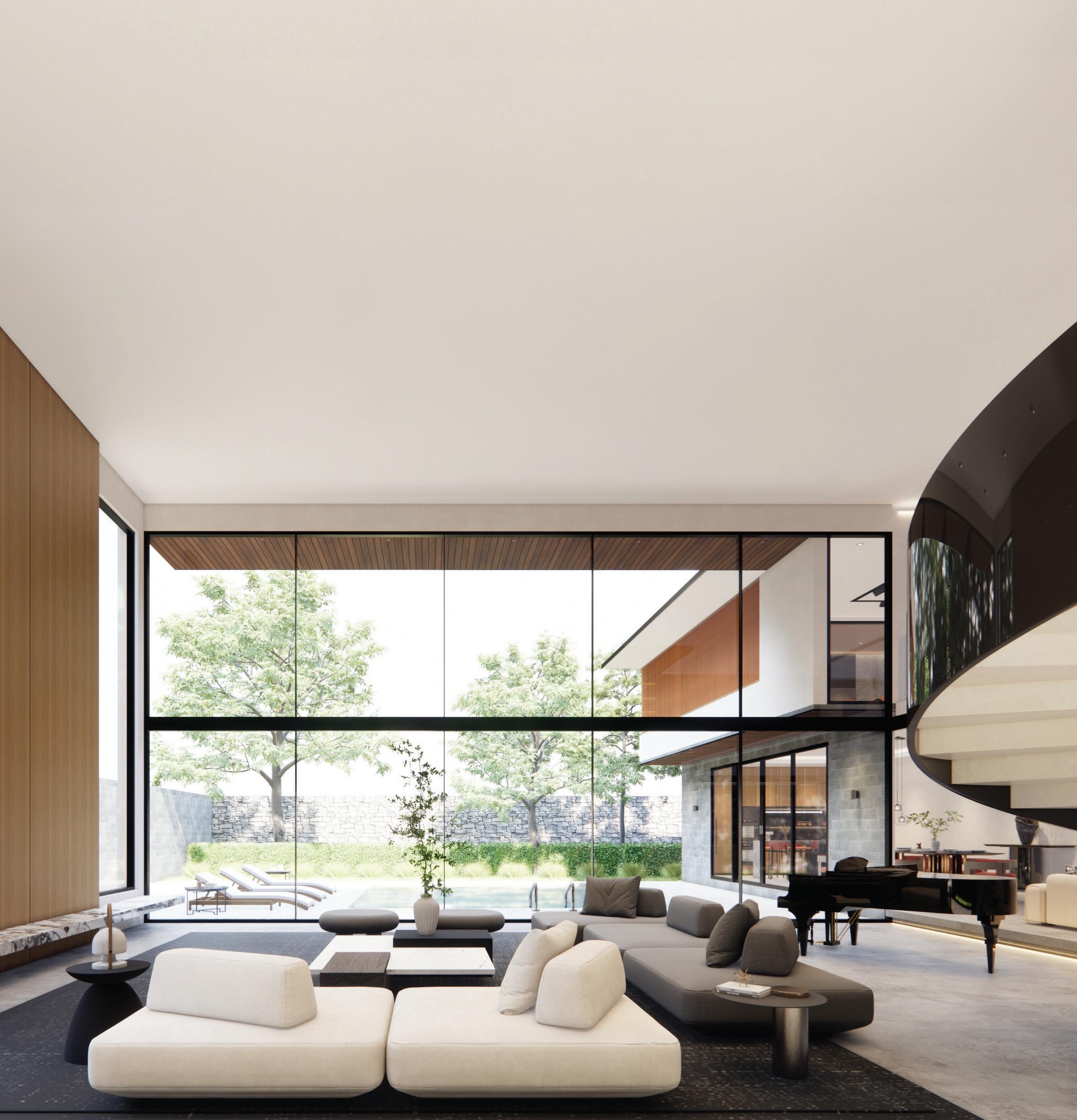market in review 2024




market in review 2024



The luxury real estate market revealed its resilience in the first six months of 2024, slightly outpacing performance from the equivalent period in 2023. Sales of luxury single-family properties increased by 2.66% whereas attached property sales grew marginally by only 0.25%, per the Institute for Luxury Home Marketing.
Despite slower annual price growth, luxury home values remain strong overall. To put this into perspective, the median price for the top 10% of U.S. luxury homes is 37.5% higher in June 2024, compared to June 2020 when pandemic buying started to pick up steam.
From January to May a surge in the number of new listings coincided with a rise in sales, whereas the decline in June correlated with a drop in homes being purchased. Demand continues to be strong as reflected in the sold price remaining close to asking price for the right property.
Nearly 70% of Coldwell Banker Global Luxury Property Specialists expressed confidence in the health of the 2024 luxury market.
Nearly 50% of Luxury Property Specialists anticipate stable pricing through the remainder of the year.
Over 44% of Luxury Property Specialists reported continued buyer demand for “have-it-all” properties – impeccably presented, move-in ready or new construction homes with attractive pricing.
An increase in luxury home inventory is expected, with 59.3% of Luxury Property Specialists predicting a slight rise. Additionally, 34% foresee a shift by sellers away from aspirational pricing strategies. Finally, 32.8% anticipate the wait-and-see crowd making moves after the U.S. election.
Over 22% of Luxury Property Specialists reported a growing buyer preference for adaptable homes that cater to changing lifestyles, including multi-generational living, aging in place, and hybrid work arrangements.


MICHAEL ALTNEU Vice President of Global Luxury
The Trend Report has always had a forward-looking gaze. Each January, the Coldwell Banker Global Luxury® team scans the horizon for the emerging trends expected to shape the direction of luxury property buying and selling. This year, however, we’re taking a bold step forward with the introduction of a mid-year report.
Armed with valuable mid-year data from our partner the Institute for Luxury Home Marketing, we can now revisit the six key trends we identified in early 2024. Did our forecasts hold? Have unforeseen factors emerged that have changed the market’s trajectory? What insights can we glean to navigate the remaining months of 2024 with clarity and confidence?
Without further ado, here’s a breakdown of how the trends are holding up and what new trends may shape the road ahead.
The luxury real estate market experienced a period of acceleration during the spring 2024 market, seemingly confirming the “shifting out of neutral” trend we predicted at the end of 2023. May’s figures for single-family home sales more than doubled from the beginning of the year, increasing by 124.7% since January 2024 and 4.5% compared to May 2023. Attached homes also saw strong growth trajectory in the first part of the year, jumping 122% since January 2024 and 5.3% from May 2023.
High-net-worth consumers, many of whom had been waiting on the sidelines for most of 2023, appeared to grow more comfortable with higher interest rates and decided to re-enter the market. Rising consumer confidence met a rising tide of new luxury home listings, and corresponding sales followed. New inventory levels in the spring were also up – a sign that sellers have become more confident that their luxury homes will sell.
However, by June, the spring momentum appeared to have tapered off as summer took hold and luxury consumers reverted to a wait-and-see approach with mortgage rates and the U.S. election looming.
Our prediction at the beginning of 2024 that affluent buyers would eventually adapt to higher interest rates and prices has largely come to fruition. Coldwell Banker Global Luxury Property Specialists tell us that their clients – who are less likely to utilize a traditional mortgage to finance their purchase – are increasingly turning to cash purchases to offset higher rates this year.
A strong U.S. economy, job creation, a resilient stock market, and record-high home equity have collectively bolstered consumer sentiment through the first two quarters of 2024. The stock market remains an important driver of long-term wealth growth and an inflation hedge in portfolios. Real estate has historically offered similar protection. According to the Intercontinental Exchange (ICE) Home Price Index,1 home equity soared to $16.9 trillion in the first quarter of 2024, with $11 trillion of that available for homeowners to leverage without compromising a 20% equity cushion – an all-time high.
While overall international investment in U.S. real estate has declined year-over-year as reported recently by the National Association of REALTORS® (NAR),2 high-net-worth international buyers remain drawn to major U.S. markets such as New York, Los Angeles, and Miami. This trend is supported by Wealth-X findings, as published in The Trend Report in January,3 and anecdotal accounts from Coldwell Banker Luxury Property Specialists in these cities.
Not all luxury markets are equal. Some markets are running hot while others are cool. What could be at play across these locations is often a complex interplay of local economic conditions, local regulations, lack of desirable inventory, evolving consumer preferences, climate, or even insurance considerations. Subtle shifts in lifestyle priorities could also be holding certain markets back.
Some Luxury Property Specialists, for instance, report that their affluent buyers have shifted their focus from secondary residences to primary residences, which may account for a market like Naples, Florida posting lower sales figures this year to date while a market like East Bay, California is posting stronger sales numbers. Financial considerations are likely playing a role too, as secondary home mortgage rates typically come at a premium. Desirable inventory in many sought-after locations, while improving, may also still be historically low and dragging down overall sales. If buyers aren’t willing to settle in certain locations, they’ll simply wait until they can acquire the home they want.


This brings us to another trend that’s holding true: “have-it-all” properties. The majority of Luxury Property Specialists we surveyed for our mid-year report told us that most affluent buyers remain uncompromising in their search for dream homes.
Demand for luxury spec houses and townhomes remains particularly strong. Modern aesthetics with natural materials like wood, an open plan, eco-friendly features, and the latest smart home technology – these are all on the must-have list, along with flexible and functional living spaces that cater to a variety of experiences, wellness, and a sense of community. This shift seems to be driven by growing numbers of younger affluent buyers who have different priorities than previous generations. The trend is likely to continue as HENRYs (High Earners Not Rich Yet) also enter the market in the coming years. Fortunately for them, with increased inventory this year and high-end developers beginning to take note, more of these “dream homes” could be attainable.
AI continues to be a game-changer in real estate in both expected and surprising ways. A survey by Delta Media4 revealed widespread adoption of AI among leading brokerages, including Anywhere Real Estate, which owns Coldwell Banker Real

Estate LLC. A staggering 75% of real estate agents surveyed already use AI, with nearly 80% of their agents leveraging its power.
How are agents putting AI to work? According to the survey, it’s mostly being used to streamline content creation at the moment. Some real estate listing platforms are already using AI-powered predictive analytics to generate property value estimates and forecast trends based on data. Creating hyper-personalized marketing campaigns and transforming virtual tours with interactive features and personalized recommendations using AI tools could be next on the horizon. All of this allows the agents of the future to deliver a more streamlined, personalized, data-driven experience to their clients.
Tempering this excitement are the same challenges and pitfalls we highlighted in our January report. Real estate brokerages are still concerned about safeguards for AI, per that same survey.
As we reach the mid-year point, it’s gratifying to see many of the trends we identified in January holding true. What excites us about moving forward in 2024: a strong spring season, the return of consumer confidence, rising inventory levels, luxury home spec building that clicks all the boxes for today’s luxury buyers, and the potential for an interest rate reduction in September, as called for by NAR,5 which could further boost activity in the fall. What gives us pause: fragilities like the U.S. election and geopolitical events.
Rest assured, Coldwell Banker Global Luxury Property Specialists are at the forefront of this ever-evolving landscape, ready to leverage data insights from this report to guide their high-net-worth clients toward success this year.









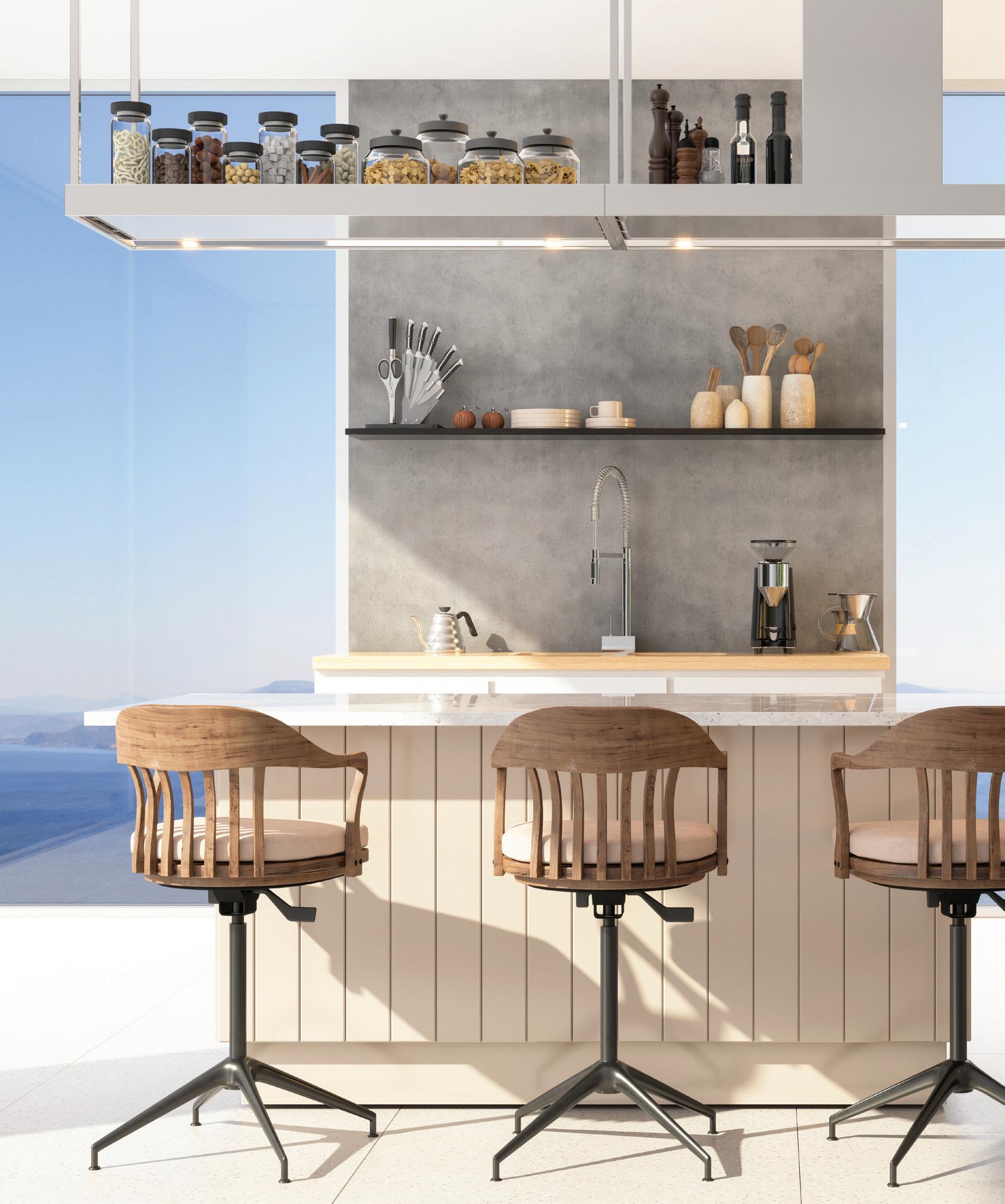

s we reach the halfway point of 2024, a comprehensive analysis is essential for understanding the market’s trajectory.
We conducted a comparison of statistical data for the luxury singlefamily and attached property markets during the first half of 2023 and 2024. Our examination focused on key metrics including:
• Total monthly sales
• Average monthly sales
• Median sold prices
• Inventory levels
• Sold price per square foot
• Average list-to-sold price percentages
• Days on market
By comparing these metrics, we were able to uncover key trends driving the luxury housing market. Additionally, we analyzed sales ratios over the past 18 months to assess market conditions and determine whether they favored buyers or sellers.
The report concludes with a market summary, highlighting key statistics for each metric and offering a clear snapshot of the luxury real estate landscape both yearover-year and month-to-month to date.
MONTHLY MARKET COMPARISONS | JANUARY - JUNE 2023 VS. 2024
MONTHLY MARKET STATUS SALES RATIOS | JANUARY 2023 - APRIL 2024
| JANUARY 2023 - APRIL 2024
• Overall the variances between the first six months of 2024 show that the luxury single-family market is stronger in comparison to 2023.
• Over the last six months the luxury single-family market trended from a balanced market at 13.9% in January to a seller's market at 22.6% in June.
• The median monthly sold price increased by 4.61% compared to first half of 2023, ending in June with a 6.0% year-over-year increase.
• Inventory levels increased by a monthly average of 17.1% compared to the first half of 2023, ending with June reporting a 21.9% increase year-over-year.
• Sales volume for first half of 2024 increased by 2.7% compared to 2023 – with substantial increases in the first four months of the year but a significant comparative decline in June 2024.
• Properties continued to sell close to list price during the first six months of 2024, ending in June 2024 with a sales ratio of 98.3%.
• Properties are staying slightly longer on the market, up from an average of 26 days in 2023 to 29 days in 2024, ending in June with an average of 19 days.
MARKET COMPARISONS | JANUARY - JUNE 2023 VS. 2024
VARIANCE COMPARISON | JANUARY - JUNE 2023 VS. 2024
$1,131,083 $1,204,390
MONTHLY MARKET STATUS SALES RATIOS | JANUARY 2023 - APRIL 2024
MONTHLY MARKET STATUS SALES RATIOS | JANUARY 2023 - APRIL 2024
• Overall the variances between the first six months of 2024 show that the luxury attached market is stronger in comparison to 2023.
• Over the last six months the luxury attached market trended from a buyer’s market at 11.8% in January to a balanced market at 18.9% in June.
• The median monthly sold price increased by 6.5% compared to first half of 2023, ending in June with a 3.3% year-over-year increase.
• Inventory levels increased by a monthly average of 17.2% compared to the first half of 2023, ending with June reporting a 20.1% increase year-over-year.
• Sales volume for first half of 2024 increased by 0.3% compared to 2023 – with substantial increases in the first five months of the year but a significant comparative decline in June 2024.
• Properties continued to sell close to list price during the first six months of 2024, ending in June 2024 with a sales ratio of 98.6%.
• Properties are staying slightly longer on the market, up from an average of 27 days in 2023 to 29 days in 2024, ending in June with an average of 25 days.
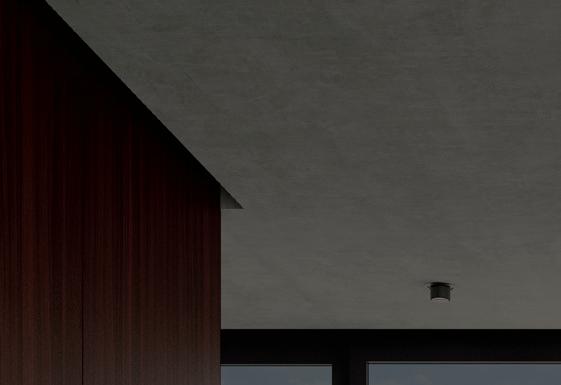






he benefit of a mid-year market review is that we can look in the rear-view mirror but also at the road ahead. By analyzing year-to-date data, we can identify subtle market shifts and uncover emerging trends that might not have been obvious at the beginning of the year. This empowers Coldwell Banker Global Luxury® Property Specialists to navigate the changing real estate landscape with confidence and adjust course as needed to guide their clients effectively through the remainder of 2024.
The luxury real estate market has shown resilience in the first six months of 2024, slightly outpacing performance from the equivalent period in 2023. Sales of luxury single-family properties increased by 2.66% whereas attached property sales grew marginally by only 0.25%.
The luxury market gained significant momentum in the early part of the
New inventory remains the driving force in this current market.
year, culminating in a robust spring buying season through March, April, and May. The market had returned to a more favorable seller’s advantage for both single-family homes and attached properties. Both new and existing inventory levels increased, fueling year-over-year and month-over-month sales growth in the luxury sector.
By June, sales activity for both property types began to slow as inventory levels continued to rise. Consequently, the sales-to-inventory ratio for the first half of 2024 dipped slightly compared to the previous year. However, this decline can be mainly attributed to the rise in supply rather than waning luxury buyer demand.
New inventory remains the driving force in this current market. From January to May, increases in new listings correlated with rising sales. Conversely, the month-to-month decline in new listings in June (7.5% for single-family homes and 11.5% for attached properties compared to May) coincided with a drop in sales.
Demand continues to be strong as reflected in the sold price remaining close to asking price, but buyer hesitancy clearly surfaces when pricing is misaligned with market trends or properties don’t meet the refined expectations of affluent buyers.
The accompanying chart illustrates a crucial dynamic happening in the U.S. national luxury market currently. When key factors align, as they have in recent months, the disparity between list price and final sale price narrows significantly. Notably, agents are reporting a return of over-asking bids for highly coveted properties in high-demand areas. For Coldwell Banker Global Luxury Property Specialists, this underlines the importance of understanding buyer motivations and property values to achieve optimal outcomes for their high-net-worth clientele.

As previously noted, a critical factor driving market performance is new and right inventory. In many markets, sales activity has been dampened by a low supply of luxury properties that align with affluent buyer expectations. Meanwhile, prices have remained stubbornly high. “Have-it-all” properties, whether it’s new-construction, move-in ready homes, or bespoke residences offering curated lifestyle experiences, continue to be in highest demand among discerning buyers.
Markets that have successfully adjusted to this demand by introducing new, desirable luxury inventory have experienced strong sales. A prime example: Austin, Texas, saw luxury home sales remain steady from the second quarters of 2023 and 2024 and increase by nearly 20% compared to the same two quarters in 2020. The reason? A wave of new luxury construction1 that began in 2021 in response to the city’s surging popularity at the height of the pandemic. These new higher-end properties are finally coming to market, offering an expanded selection for buyers and keeping prices high. The average median luxury sold price rose 3.5% from $1.9 million to $1.97 million year-over-year. The takeaway? Build the right kind of luxury inventory, and affluent buyers will come.
However, as we previously noted in the Trend Report 20242 earlier this year, not all luxury markets are equal. Aspen exemplifies this. Here, low inventory continues to restrict sales volume. This isn’t due to a lack of demand – Aspen remains a highly coveted market, especially
among ultra-wealthy individuals. This pent-up demand has led to steep competition for desirable listings when they do hit the market, pushing prices steadily upward. However, a glimmer of hope may be on the horizon for weary buyers eager to secure a foothold in Aspen real estate. The last and final developable parcel is anticipated to go on sale in Snowmass Base Village later this winter, potentially easing the Aspen-area housing crunch somewhat.
As the Austin and Aspen examples demonstrate, inventory levels can be deceiving in the luxury market.
While year-over-year comparisons offer valuable luxury market insights, a longer-term perspective reveals a more robust picture. Despite slower price growth in the past year, luxury home values remain strong overall. For instance, the median U.S. home price for the top 10% of luxury homes rose 37.5% in June 2024 compared to June 2020, when the pandemic buying boom first started to gain momentum.
Paradise Valley leads this trend with a 125.1% price appreciation from 2020 to 2024.

MEDIAN U.S.
June 2020
$1,232,500
June 2024
$1,695,000
Source: Institute for Luxury Home Marketing
A review of top U.S. luxury home markets reveals some staggering numbers over this four-year period. High-end home prices in retirement havens like Arizona’s Paradise Valley, Florida’s Sarasota, and California’s Palm Springs have doubled since 2020, likely due to the equity amassed by retirees.
Meanwhile, vacation spots like Hawaii, Miami, and Vail continue to have sustained appeal. These established resort destinations have a well-developed infrastructure catering to affluent lifestyles, from posh shops to five-star restaurants, spas, entertainment options, and a rich selection of new construction or move-in ready luxury properties.
Southern cities like Nashville, Charlotte, Atlanta, and Raleigh, NC, are also drawing affluent buyers, especially from pricier coastal areas. Atlanta’s growing metropolis and lower cost of living offer a unique value proposition, while Raleigh’s booming tech sector and strong job market is fueling luxury market growth there.
GROWTH PERCENTAGE OF 25 TOP U.S. CITIES
Top 10% Sold Price 2020 vs. 2024
Sold Price Growth
Paradise Valley, AZ
Island of Hawaii, HI
Miami, FL
Sarasota & beaches, FL
Palm Springs, CA
Vail, CO
Nashville, TN
Scottsdale, AZ
Boca Raton & Delray Beach, FL
Kauai, HI
Phoenix, AZ
Raleigh-Durham, NC
Charlotte, NC
San Diego, CA
Reno, NV
Las Vegas, NV
Salt Lake City, UT
Fort Worth, TX
Greater Atlanta, GA
Maui, HI
Denver, CO
Park City, UT
Boston, MA
Washington, DC
Austin, TX
Naples, FL
Source: The Institute for Luxury Home Marketing
When you look at long-term price appreciation for ultra-luxury properties – the top 5% – the figures are even more dramatic and reveal a broader phenomenon happening nationally. The ultra-highend is outperforming the traditional market. A recent Realtor.com®3 study supports this. Their analysts tracked the top 5% of home listings in various cities and compared their price changes between April 2020 and April 2024. The median U.S. home price rose 34%, while the most expensive homes saw a much steeper 47% appreciation overall in their analysis.
MEDIAN U.S. HOME PRICE
$320,000 April 2020 $430,000 April 2024
MEDIAN U.S. HOME PRICE – TOP 5%
$1.5 MILLION April 2020 $2.2 MILLION April 2024
Source: Realtor.com
Traditionally, local economic factors have influenced the performance of a city’s entire housing market, including the high-end segment. However, per a recent Bloomberg report,4 the ultra-luxury housing segment appears to exist in a different market entirely, largely detached from local economic conditions. Ultra-high-net-worth individuals tend to operate in a global environment, and motivations at this level can extend beyond traditional investment goals. Some ultra-wealthy buyers may be drawn to the prestige and exclusivity associated with high-priced properties, intensifying competition in this segment.
Major U.S. luxury epicenters such as New York City, Beverly Hills, and Miami, where high concentrations of ultra-wealthy individuals typically live, have all experienced record price surges of their own since June 2020.
U.S. LUXURY REAL ESTATE
All these trends point to broader strength in the luxury housing market as we head into the second half of 2024. But digging deeper, what’s behind the luxury sector’s resilience?

GROWTH % OF TOP U.S. CITIES TOP 5% SOLD PRICE 2020 VS. 2024
Sold Price Growth
Miami, FL
Los Angeles, CA Boston, MA
Washington, DC
Manhattan, NY
Chicago, IL
San Francisco, CA
Following the Federal Reserve’s interest rate decrease in October, many experts anticipated a market resurgence after a sluggish 2023. However, as hinted at in The Trend Report, a different factor appears to be driving the market: affluent consumer confidence.
Historically resilient to external economic pressures, high-net-worth buyers have adapted to the new landscape of higher mortgage rates and prices. Renewed confidence, fueled by a combination of factors, led to

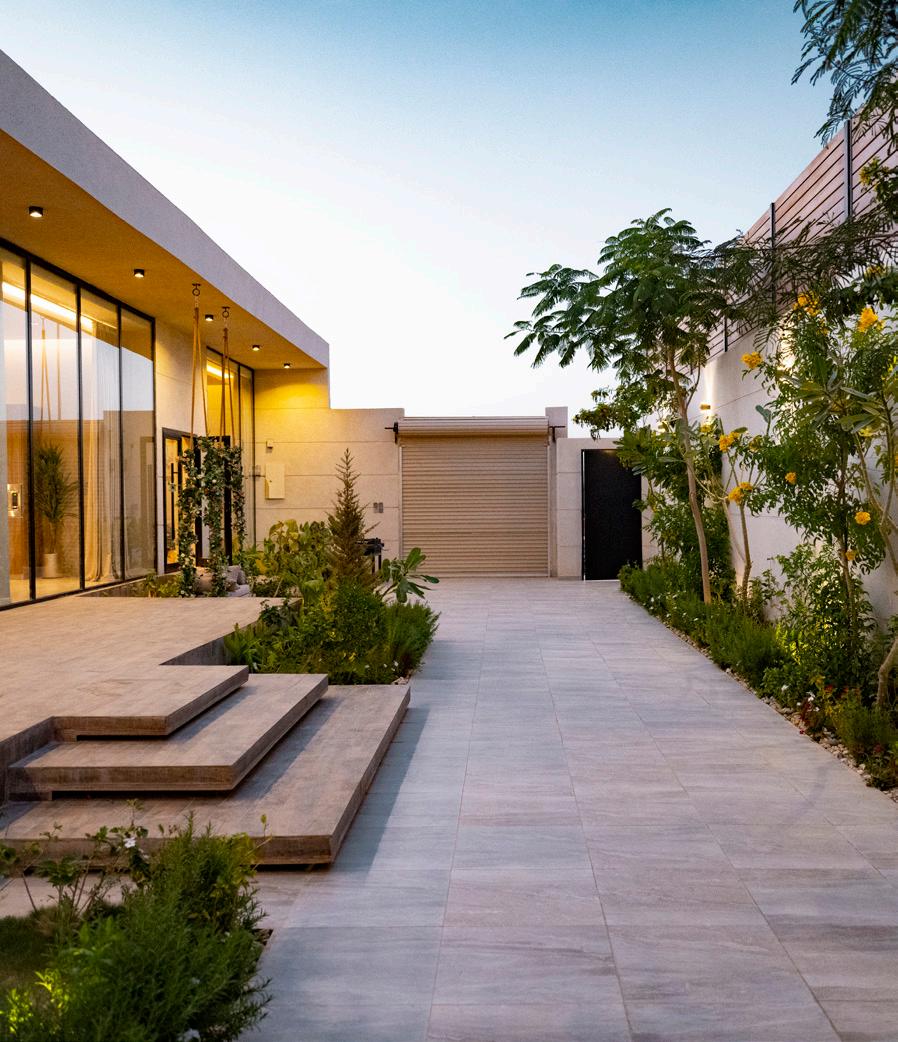
a surge in buyer activity this spring, resulting in increased inventory and stronger sales to date.
• Economic Stability: Despite the challenges of 2023, the U.S. economy has shown steady growth for the past six months.5 Decreasing unemployment, rising wages, and returning consumer confidence have created a favorable buying and selling environment for the highest earners.
• Historic Luxury Home Price Appreciation: The luxury home sector has continued to demonstrate resilience over the past four years, solidifying real estate as a reliable long-term wealth-building asset for high-net-worth individuals. Several years of robust home price appreciation have resulted in a record $11 trillion in tappable home equity for American homeowners, according to a recent Intercontinental Exchange (ICE) report.6
• Wealth on the Move: Strong performance 7 in the stock market and other investments over the past six months has increased wealth among affluent buyers, leading to a rise in demand for upscale properties.
• Hotspot for International Travelers: The World Economic Forum8
recently ranked the U.S. as a top travel destination. Affluent buyers often purchase homes in locations they fall in love with during travels, leading to potential growth in this sector.
• Technological Innovation: Smart home advancements,9 developments in AI, and sustainable features are enhancing the luxury home experience, making certain properties even more desirable to discerning luxury buyers.
This Mid-Year Report marks a checkpoint on a continuous journey of discovery in the luxury real estate market, a market that has consistently proven its resilience compared to the traditional sector. While the future remains unknown, the momentum tracked in the first half of the year underscores the long-term strength of luxury real estate. Rest assured, Coldwell Banker Global Luxury Specialists – armed with data-driven insights – are well positioned to guide their high-net-worth clients toward success in this ever-evolving landscape.





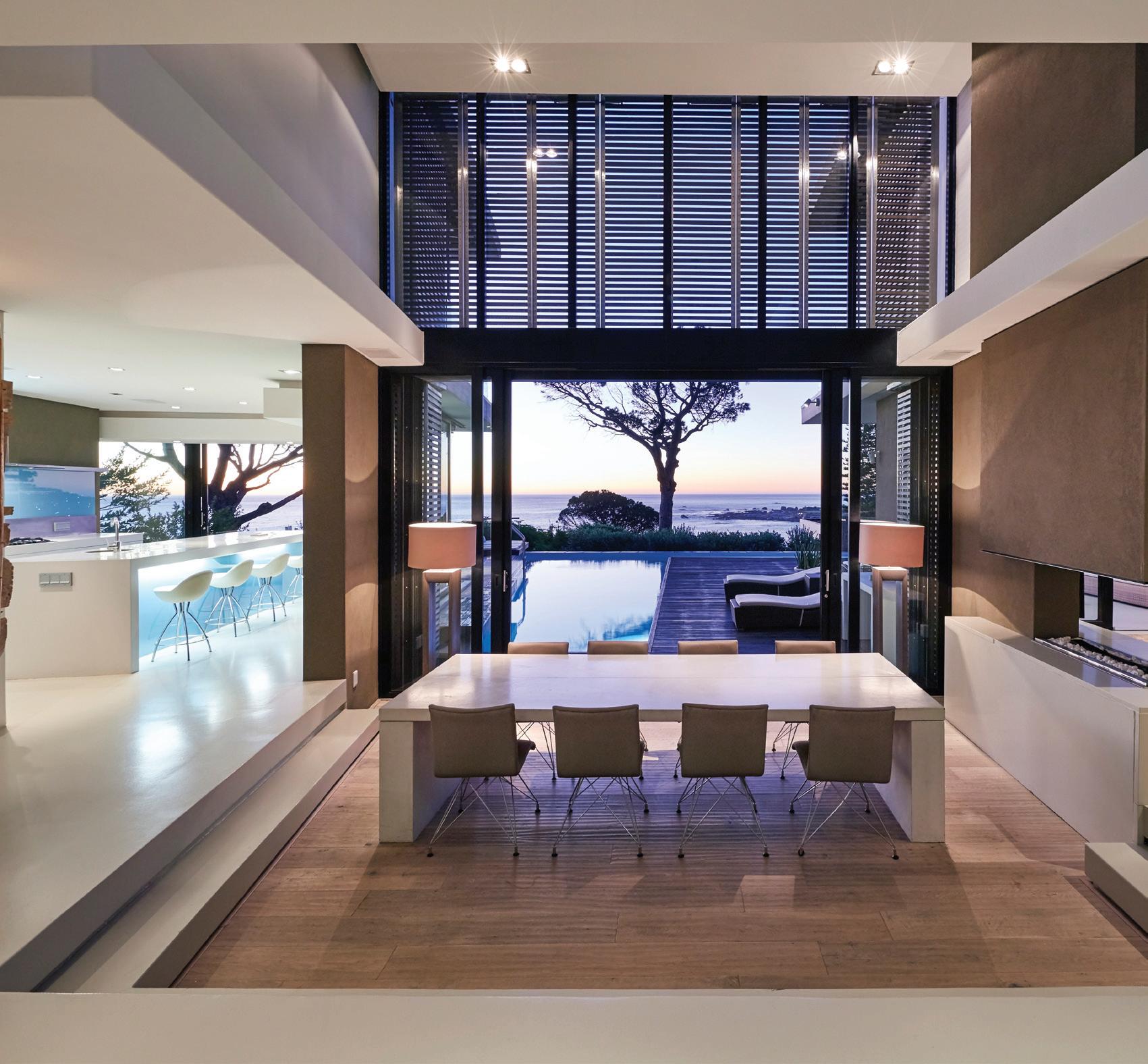

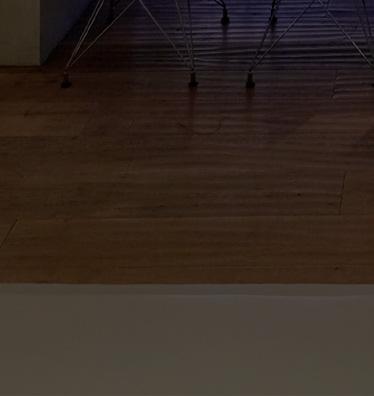
he tides of sentiment have turned, leading to a more positive outlook for luxury real estate in 2024.
To gain a deeper understanding of this evolving landscape, we turned to the luxury real estate insiders within the Coldwell Banker network. How confident are they about the overall 2024 luxury market? What factors are currently motivating buyers and sellers? What’s happening to prices and inventory levels? What are their predictions for demand and new inventory?
The most prominent sentiment among Luxury Property Specialists polled was optimism.

We posed these questions and more to over 250 Coldwell Banker Global Luxury Property Specialists worldwide. The survey summarizes their thoughts regarding the current state of the high-end property market, along with their predictions for how affluent buyers and sellers could move this year as they navigate everything from necessary lifestyle changes to low inventory, higher interest rates, and uncertainty around the impending U.S. election.
Source: Coldwell Banker Global Luxury Property Specialist Survey
The most prominent sentiment among the Luxury Property Specialists we polled was optimism. Nearly 70% said they were either extremely confident or somewhat confident in the health of the 2024 luxury housing market, with some regional variation.
Northeastern U.S. Luxury Property Specialists (91.42%) were the most confident compared to their counterparts in the Western U.S. (53.5%). Those outside the U.S. also expressed strong optimism (83.4%).
More cautious and deliberate
Increased focus on speci c features and amenities
Ready to move quickly on the right property
More focused on nding a deal
Most Luxury Property Specialists surveyed (39.1%) said that affluent buyers are being more cautious and deliberate this year. A significant portion of Luxury Property Specialists also reported that once buyers find the perfect property, they’re ready to move swiftly, and they’re prioritizing properties with specific features and amenities (“have-it-all” properties).
Regionally, Northeastern and Midwestern U.S. buyers seem more decisive, ready to move if it’s the right property. Meanwhile, Southern and Western buyers tend to be more cautious. Internationally, buyers appear to be primarily driven by specific features.
BUYER MOTIVATIONS DEFINED BY REGION
More cautious and deliberate
Ready to move quickly on the right property
Increased focus on specific features and amenities
More focused on finding a deal
Lifestyle Change: property size, vacation, location, amenities
Life Stage Transition: empty nesters, family dynamics, changing needs
Investment Opportunity: capitalize on seller’s market
Relocation: job, health, climate change, family circumstances
Affluent sellers appear to be navigating the market differently in this new environment. After putting life plans on hold last year due to market uncertainty, they have gotten more realistic with their expectations and are ready to make moves that align with their long-term goals.
Life stage transitions (downsizing, growing families) and lifestyle changes (vacation homes, amenity-rich properties) remain the key motivators across all regions, according to 81.4% of Luxury Property Specialists.
Lifestyle Change: property size, vacation, location, amenities
Investment Opportunity: capitalize on seller's market
Life Stage Transition: empty nesters, family dynamics, changing needs
Relocation: job, health, climate change, family circumstances
Increase signi cantly
Increase slightly
Remain stable
Decrease slightly
Decrease signi cantly
Most Luxury Property Specialists (49%) anticipate pricing to remain stable for the rest of 2024. U.S.-based Luxury Property Specialists were generally more confident about price stability compared to their international colleagues, who anticipate modest price dips.
Luxury Property Specialists in the Northeastern and Midwestern U.S. were more bullish on prices, expecting them to remain stable or slightly increase; whereas their counterparts in the West and South said prices would remain stable or decrease slightly.
Increase significantly
Increase
Remain
Decrease
Decrease
Increase signi cantly
Increase slightly No change
Decrease slightly
Decrease signi cantly
Luxury home inventory levels are also forecasted to rise this year, with 59.3% of Luxury Property Specialists predicting at least a slight increase and another 26.5% expecting it to hold steady.
This optimism was strongest internationally and in the U.S., with the exception of the Midwest, which anticipated no change.
Source: Coldwell Banker Global Luxury Property Specialist Survey




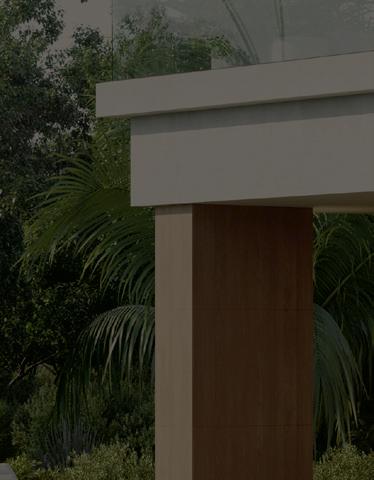


Which luxury real estate trends could carry the most weight this year?


espite some overall challenging market conditions, luxury homebuyers and sellers have largely proved resilient.
High home equity and a buoyant stock market have shielded high-net-worth individuals from the full impact of rising interest rates, allowing them to continue to make strategic real estate moves as needed for themselves or their families – often in cash. Indeed, home buyers who paid cash accounted for 32% of home sales in January, marking the highest rate since 2014, according to the National Association of REALTORS® (NAR).1
“Have-it-all” properties have continued to be a standout trend since 2023, with affluent homebuyers adapting a more discerning attitude coming out of the COVID-19 pandemic as they contend with higher interest rates, higher prices and a limited selection of properties that meet their list of must-haves. That’s still the case today. Over 44% of Coldwell Banker Global Luxury Property Specialists said that demand persists for well-priced, impeccably presented high-end properties, particularly those that are “unicorns” such as move-in ready, new construction, or highly amenitized.

Limited inventory is another driving trend, with 23% of specialists citing it as a major obstacle to sales.
These two themes – increasingly selective buyers and a limited supply of “unicorn” properties – are likely to influence the
Have-it-All Properties
The Deal-Chasing Luxury Buyer
Curated Experiences
Continued Lack of Inventory
Primary vs. Secondary Homes
Other
luxury housing market throughout the rest of 2024. In fact, they’re already providing the undercurrent for several new and notable trends, as uncovered by Coldwell Banker Global Luxury Property Specialists during our survey.
The Long-Term Home: Adaptability for changing life stages and needs
Security and Privacy Prioritization: gated communities, 24-hour concierge buildings
Sellers Get Realistic: aspirational pricing becomes a thing of the past
Wait-and-See Crowd Gets Off the Fence in the Fall (after the election)
New Luxury Spec Home Construction to Meet Buyer Demand
Other
About 34% of Luxury Property Specialists said they expected affluent sellers to get more realistic in 2024 and finally leave the aspirational pricing of the pandemic buying boom years in the rearview mirror. This trend was particularly dominant in the Western U.S. region and a close second in the Northeast.
Motivated sellers are mindful of the challenges facing today’s buyers, such as elevated interest rates, macroeconomic concerns, high home prices, and increasing selectivity in making offers and closing deals. They realize the days of buyers overpaying or settling for a home that doesn’t meet their high standards are gone. Improved inventory levels have also heightened competition between sellers, leading to price adjustments in some markets, especially in popular pandemic boomtowns.
Even so, these reports don’t necessarily reflect an overall softening of luxury home prices. Nationally, luxury home prices are still on the rise and sellers are achieving close to their asking prices. As of June 2024, the sales-priceto-list-price ratio (SP/LP) trended close to 99% for both single-family and attached properties. This strong SP/LP percentage shows buyers are still willing to pay a premium for the right property, so long as it matches their expectations and aspirations.
Even with inventory increasing in some locations, luxury homes stayed on the market an average 29 days for the first two quarters – only 2.5 days longer than the same period last year. It’s not a dramatic change, underscoring the continued strength of the luxury home sector expected for the remainder of 2024.
The Long-Term Home: Adaptability for Changing Life Stages and Needs
Security and Privacy Prioritization: Gated Communities, 24-Hour Concierge Buildings
Sellers Get Realistic: Aspirational Pricing Becomes a Thing of the Past
Wait-and-See Crowd Gets Off the Fence in the Fall (After the Election)
New Luxury Spec Home Construction to Meet Buyer Demand
Other

A perfect storm of economic and political uncertainty has caused some high-end buyers and sellers to adopt a wait-andsee approach to real estate. However, this cautious approach may soon shift as the year progresses.
The 2024 U.S. election, coupled with economic challenges like inflation, stock market volatility, and elevated interest rates, has prompted some affluent buyers and sellers, both domestic and international, to sideline their real estate plans for the short-term. In fact, overall foreign investment in U.S. residential property dropped to a record low between April 2023 and March 2024 according to a new 2024 report from the National Association of Realtors (NAR).2 While NAR analyzes all market segments in the U.S. and not exclusively the luxury home segment, there is little doubt that high home prices, in addition to limited inventory and a strong U.S. dollar have exacerbated challenges for some overseas buyers. That’s less the case the higher up in wealth tiers you go, as The Trend Report 20243 reported earlier this year using Wealth-X data.
Despite these challenges, a notable contingent of Luxury Property Specialists (32.8%) remains optimistic about a potential surge in buying and selling activity, as pent-up demand could be unleashed in the fall. Those specialists based in the Midwestern and Southern U.S. regions were the most likely to have this positive outlook.
Supporting their optimism is a recent streak of positive economic indicators. The U.S. economy’s robust performance, as evidenced by the latest GDP report4 released in late July, coupled with a bullish second-half outlook for the stock market5 and anticipation of a Federal Reserve interest rate cut in September, has bolstered hopes for a market boost in the final quarter of 2024. Lower mortgage rates would alleviate buyer affordability challenges and entice high-end homeowners locked into low-rate mortgages to consider selling. Moreover, the outcome of the presidential election could inject fresh momentum into the market.
A gain in inventory, coupled with the confidence that prices aren’t going to drop dramatically any time soon, could further entice cautious affluent consumers to jump back into the market in late 2024. Many still view real estate as a prudent long-term investment and hedge against inflation.
Over 22% of Luxury Property Specialists identified a property trend that marks a notable departure from the past few years: the long-term home. This phenomenon was most prominent in the Northeastern U.S. region and internationally.
During the height of the pandemic (2020-2021), immediate space requirements drove demand for larger homes with multiple bedrooms, dedicated home offices, flex spaces, and expansive outdoor areas. However, as the world reopened and market conditions tightened with rising prices, higher

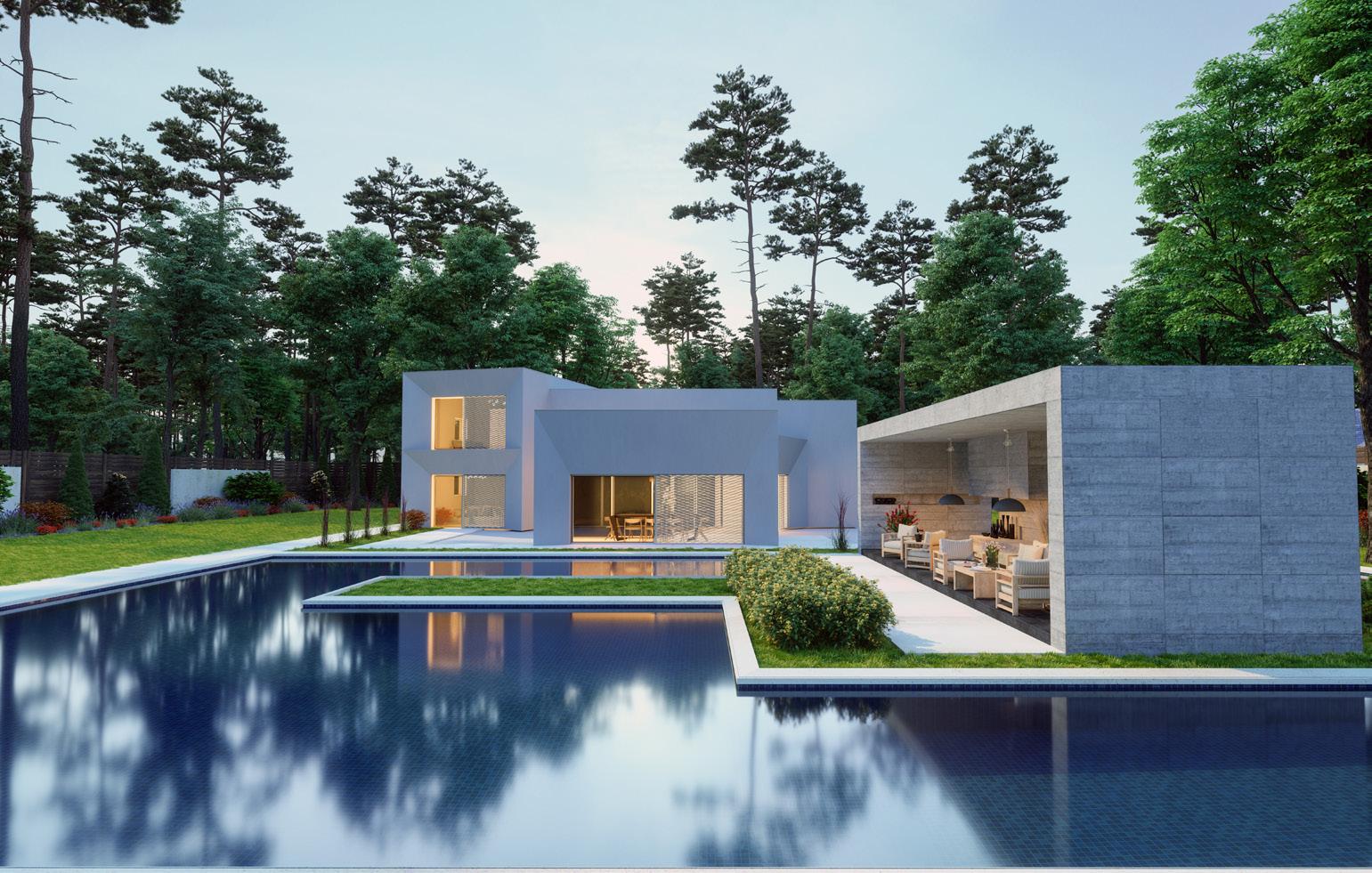
interest rates, and limited inventory, luxury homeowners have grown increasingly reluctant to move and are starting to view properties through a longer lens. As previously noted, luxury buyers too, have become more conservative in this environment, preferring to wait for the perfect property that meets their long-term goals. This dynamic aligns with broader market trends as buyers now expect to reside in their homes for an average of 15 years, compared to 12 years in 2021, per a 2023 National Association of Realtors (NAR)6 report.
Luxury Property Specialists who spotted this trend say affluent buyers are increasingly prioritizing adaptability and flexibility in their next homes. They desire spaces that can accommodate changing lifestyles, from multi-generational living to aging in place and hybrid work arrangements. There’s a growing interest in separate structures for guests or aging parents, as well as wellness features and indoor-outdoor connections. Other considerations include the integration of energy-efficient smart home technologies, from lighting and automation to future AI applications, that make homes more intuitive and responsive to homeowners’ changing needs. And as extreme weather events become more frequent, luxury buyers could also begin prioritizing properties that are built with climate resilience and sustainable design in mind.
The shift toward the long-term home is corroborated by Luxury Property Specialists worldwide who reported that life stage transitions, rather than lifestyle changes, are now the primary reasons why sellers are listing their homes. Conversely, many buyers in this new environment are driven by necessity rather than discretionary desires, prioritizing primary residences over secondary or vacation properties.
While this trend may exacerbate the low inventory problem and continue to exert upward pressure on home values, its overall impact on transaction volume remains uncertain. Rest assured, Luxury Property Specialists will be keeping a close watch.
While these trends offer some interesting insight into the potential trajectory of luxury real estate this year, the full picture of 2024 is still emerging. The extent to which sellers adjust their pricing expectations or buyers overcome market anxieties will largely depend on external factors, such as interest rates coming down and economic or political uncertainty being resolved in the fall. Even if some unknowns persist, the underlying fundamentals of the highend housing market are strong, suggesting a promising path forward through the end of the year.
The Coldwell Banker Global Luxury® program collaborated with their Luxury Property Specialists (through the means of a survey), Wealth-X, An Altrata Company, and the Institute for Luxury Home Marketing to provide insights into wealth, real estate, property investment, luxury spending preferences, and emerging trends.
For The Mid-Year Report 2024, the Institute for Luxury Home Marketing analyzed the data for the top 10% of 126 U.S. markets. Data contained is from January 1, 2020, to June 30, 2024, and has been computed by the Institute for Luxury Home Marketing’s data research partner and shared with Coldwell Banker Global Luxury® and based on information attained both privately and publicly. The Top 10% is defined as a property in the Top 10% of any given market. These homes (in terms of inventory, solds, or list prices), match or exceed the 90th percentile sold price for homes sold on a monthly basis from January 1, 2020, to June 30, 2024. Closed sales reported later than the monthly analysis period were not included. Property-specific sales records were standardized, inaccurate sale prices were corrected when necessary and all duplicate records were manually excluded. As a result, statistics available via the source data providers may not correlate to this analysis.
Data is then represented monthly, half-yearly and yearly throughout the report, using medians, averages, totals, percentages, and ratios. However, unless otherwise specified, statistics typically presented in this report represent both the monthly median and the average of monthly medians of the respective data. Market Status is an analysis of Sales Ratio and represents market speed and market type: where the sales ratio is 12% or less, it is a buyer’s market. If it is greater than 12% and less than 21% it is a balanced market. Over 21% it is a seller’s market. If greater than 100%, MLS data reported previous month’s sales exceeded the remaining inventory pulled at the end of the month.
in review 2024 | Pages 4 - 7
1. https://www.housingwire.com/articles/us-mortgage-holders-post-record-levels-of-home-equity-ice/
https://www.housingwire.com/articles/us-mortgageholders-post-record-levels-of-home-equity-ice/
2. https://www.nar.realtor/newsroom/annual-foreign-investment-in-u-s-existing-homes-sales-decreased-21-2-to-42-billion
3. https://www.coldwellbankerluxury.com/editorial/the-trend-report-2024
4. https://www.deltamediagroup.com/in-the-news/2024/01/23/new-delta-media-survey-shows-widespread-ai-adoption-reshaping-real-estate-despitepersistent-anxiety-over-safeguards
5. https://www.nar.realtor/newsroom/in-the-news/mortgage-rates-drop-for-the-first-time-in-five-weeks-with-experts-adjusting-their-forecasts-yahoo
Mid-Year Market Synopsis | Pages 12 - 15
1. https://www.mansionglobal.com/articles/austin-texas-buyers-market-46674e8c
2. https://www.coldwellbankerluxury.com/editorial/the-trend-report-2024
3. https://www.realtor.com/news/trends/luxury-home-prices-increased-the-most-in-these-cities/
4. https://www.bloomberg.com/news/articles/2024-04-29/how-the-super-rich-are-developing-their-own-real-estate-markets?embedded-checkout=true
5. https://am.jpmorgan.com/us/en/asset-management/adv/insights/market-insights/investment-outlook/us-economic-outlook/
6. https://www.axios.com/2024/05/08/homeowners-wealth-rich-rents-increase
7. https://www.reuters.com/markets/us/us-household-wealth-hit-another-record-first-quarter-fed-data-shows-2024-06-07/#:~:text=June%207%20 (Reuters)%20%2D%20U.S.,Reserve%20data%20showed%20on%20Friday.
8. https://www.bbc.com/travel/article/20240617-why-the-us-is-the-top-country-for-tourism-in-2024
9. https://rising-stone.com/en/the-technological-revolution-in-luxury-real-estate/
trend stories | Pages 22 - 27
1. https://www.nar.realtor/magazine/real-estate-news/share-of-cash-buyers-surges-to-decade-high
2. https://www.nar.realtor/newsroom/annual-foreign-investment-in-u-s-existing-homes-sales-decreased-21-2-to-42-billion
3. https://www.coldwellbankerluxury.com/editorial/the-trend-report-2024
4. https://www.investopedia.com/a-fed-rate-cut-appears-imminent-not-everyone-thinks-it-is-the-right-time-8683208
5. https://www.investors.com/news/stock-market-forecast-next-6-months-magnificent-seven-tech-sp500-nasdaq/
6. https://www.nar.realtor/sites/default/files/documents/2023-home-buyers-and-sellers-generational-trends-report-03-28-2023.pdf
©2024 Coldwell Banker. All Rights Reserved. Coldwell Banker and the Coldwell Banker logos are trademarks of Coldwell Banker Real Estate LLC. The Coldwell Banker® System is comprised of company owned offices which are owned by a subsidiary of Anywhere Advisors LLC and franchised offices which are independently owned and operated. The Coldwell Banker System fully supports the principles of the Fair Housing Act and the Equal Opportunity Act.
This report was compiled using the data platforms of the Institute for Luxury Home Marketing and Wealth-X, An Altrata Company. Data is deemed reliable but not guaranteed for accuracy. The information contained herein has been compiled together for informational purposes. The Coldwell Banker® brand is not making any recommendations for action based on the data within this report. Readers are encouraged to engage with their appropriate legal, accounting and professional counsel before implementing any suggested actions. The Coldwell Banker® brand, the Institute for Luxury Home Marketing and Wealth-X have no liability for errors, omissions or inadequacies in the information contained herein or for interpretations thereof and shall not be held liable for any claims or losses that may rise from the implementation of the data in this report. The data is subject to change at any time.
